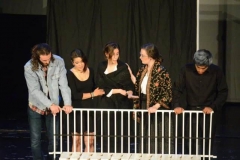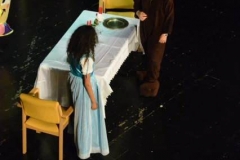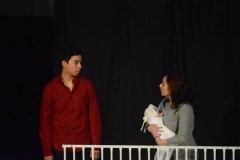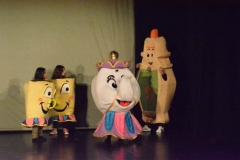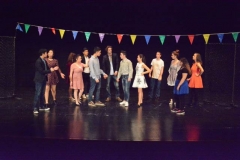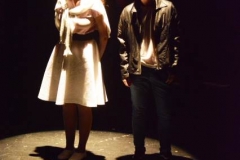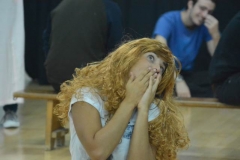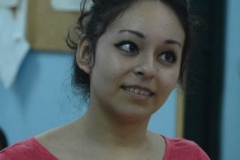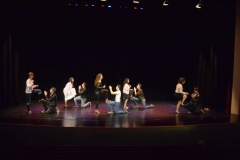Theatre as a pedagogical strategy
THEATRE as an artistic discipline must be seen as a means, rather than an end. From the Foundation we are committed to using it as a pedagogical, recreational, motivating, transversal and multidisciplinary strategy.
Our theatre projects, both the JUNIOR and the TEENAGER groups, present a philosophy, approaches and solutions completely different from the conventional ones. We work to encourage habits of conduct that promote socialization, tolerance and cooperation among equals, without forgetting the discipline and commitment so necessary in any work team.
This methodology helps us to prevent the feared and misnamed “school failure”, but above all it allows us to discover and encourage the creative and artistic abilities of our children and young people.
Two groups, two realities
The educational approach through theatre has different characteristics in childhood and adolescence.
Theatre with the youngest children allows us to work in a playful and educational way to get to know the world around us and ourselves. Within the Junior Theatre Group we develop the innate abilities of children through social interaction, theatrical play and the communication of stories, directing their creative energy through artistic dynamics to create an active and free space where they can express themselves freely.
The Adolescent Group has a different approach, because theatre at this stage becomes a tremendously dynamic and important element for the vital development of the young person, giving them participation in forms of existence that would never really enter their narrowly limited sphere, and at the same time offering them a way to channel their deepest questions, such as the search for their own identity and their place in the world. In other words, it is a matter of opening them up to new values, cultivating their sensitivity and enriching their intelligence.
Objectives:
- To stimulate artistic creativity.
- To work on attention and active listening.
- To develop social skills and group work.
- To overcome shyness and avoid isolation.
- To enjoy and experiment through play.
- Arouse curiosity and interest in culture.
- To bring children and teenagers closer to the great classics of the theatre.
- To offer new forms of expression and communication.
